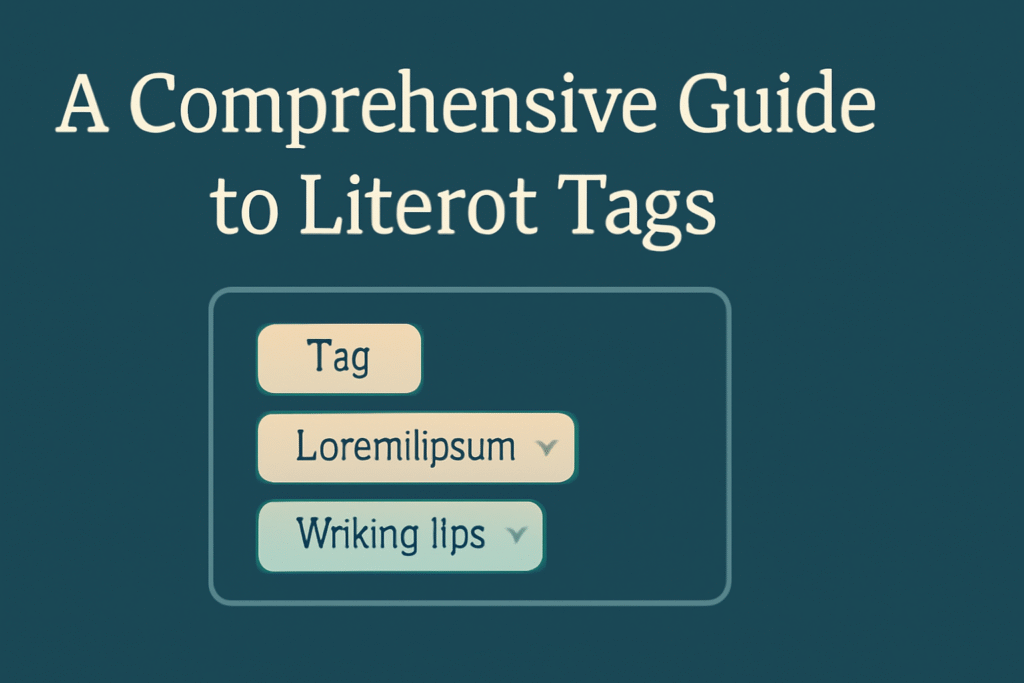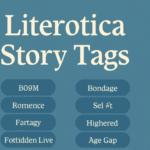What Are Literot Tags?
In the world of online content creation, literot tags have become an essential element for both content creators and marketers. These tags are keywords or phrases that are strategically added to digital content to improve its search engine optimization (SEO) performance. Literot tags are particularly useful in the context of adult content, but they can also be applied to broader niches, depending on the content. Their main role is to make content more discoverable by helping it show up in relevant searches. By targeting specific search terms, can increase visibility and attract a larger audience.
How Literot Tags Work for SEO
Using literot tags properly can significantly boost a website’s SEO ranking. When a user searches for specific terms related to adult content, websites that have integrated the right literot tags are more likely to appear in search results. This strategy aligns the content with user intent, leading to higher traffic and engagement. Moreover, allow for precise categorization, making it easier for users to find exactly what they are looking for.
The Role of Literot Tags in Content Discovery
These tags allow content to be categorized under specific keywords that are searched frequently by users. By tagging your content with appropriate literot tags, you ensure that your content shows up when users search for those specific terms. In this way, literot tags act as a bridge between the content creators and their potential audience. Tags improve the chances of appearing in search results, enhancing content discovery.
Best Practices for Using Literot Tags
To make the most out of literot tags, it is important to follow a few best practices:
- Relevance is Key
When choosing literot tags, ensure they are highly relevant to the content you’re creating. Irrelevant tags can harm your SEO performance, as search engines will categorize your content incorrectly. - Moderate Use
While literot tags are powerful tools for SEO, overusing them can lead to “keyword stuffing,” which can negatively affect the user experience and your SEO rankings. Aim to use tags that are both specific and relevant, but don’t overdo it. - Use Long-Tail Keywords
Long-tail keywords are longer, more specific phrases that users might search for. Integrating long-tail can make your content more specific, reaching the right audience and improving your SEO ranking. - Monitor Performance
Regularly track the performance of your . Analyzing which tags are driving traffic will help you refine your strategy, allowing you to focus on those that bring the most value.
The Impact of Literot Tags on Engagement
Aside from improving SEO, literot tags can also increase user engagement. By categorizing content in a way that matches user searches, you ensure that visitors are more likely to stay on your page and interact with the content. Additionally, it enhances the overall user experience, leading to higher satisfaction and longer time spent on your site.
Avoiding Overuse: Key Considerations
While are incredibly beneficial, it’s important to use them sparingly and wisely. Overloading your content with too many tags can make the experience overwhelming for your audience. Furthermore, excessive tagging may lead to penalties from search engines, which could hurt your rankings. Use thoughtfully to ensure that they enhance, rather than detract from, the overall quality of your content.
How Literot Tags Help with Search Intent
Search engines have become much more sophisticated at understanding search intent. By including that align with what users are actively searching for, content creators can ensure that their material is presented to the most relevant audience. This approach not only improves SEO rankings but also boosts engagement and conversions, as users find exactly what they are looking for.
Tagging for Different Content Types
Not all content is the same, and neither should the literot tags be. When tagging, consider the type of content you are working with. For example, adult content websites may require specific tailored to that niche, while blogs about lifestyle or hobbies will need different tags. Ensuring that your match the content type helps search engines better understand what your content is about.
The Future of Literot Tags and SEO
As the internet continues to evolve, the role of literot tags in SEO will remain crucial. Search engine algorithms are becoming more complex, but the fundamentals of content categorization and discoverability through tags will likely remain unchanged. Creators who master the use of today will likely continue to benefit as search engines prioritize high-quality, relevant content in the future.
Frequently Asked Questions (FAQs)
Q1: What are
are specific keywords or phrases added to digital content to improve its search engine optimization (SEO) performance. They make content more discoverable by matching user search queries.
Q2: How do I choose the best for my content?
The best are relevant to your content, specific to your niche, and closely aligned with popular search queries. Use tools like Google Trends to help identify the most relevant tags.
Q3: Can I use for non-adult content?
Yes, while are often associated with adult content, they can be used in any type of content that benefits from being categorized under specific keywords.
Q4: How many should I use?
Moderation is key. Too mny tags can result in keyword stuffing, which harms your SEO ranking. Ideally, use 5-10 well-chosen tags per piece of content.
Q5: Do affect user engagement?
Yes, by helping users find exactly what they are searching for, can increase engagement and the time users spend on your site.



